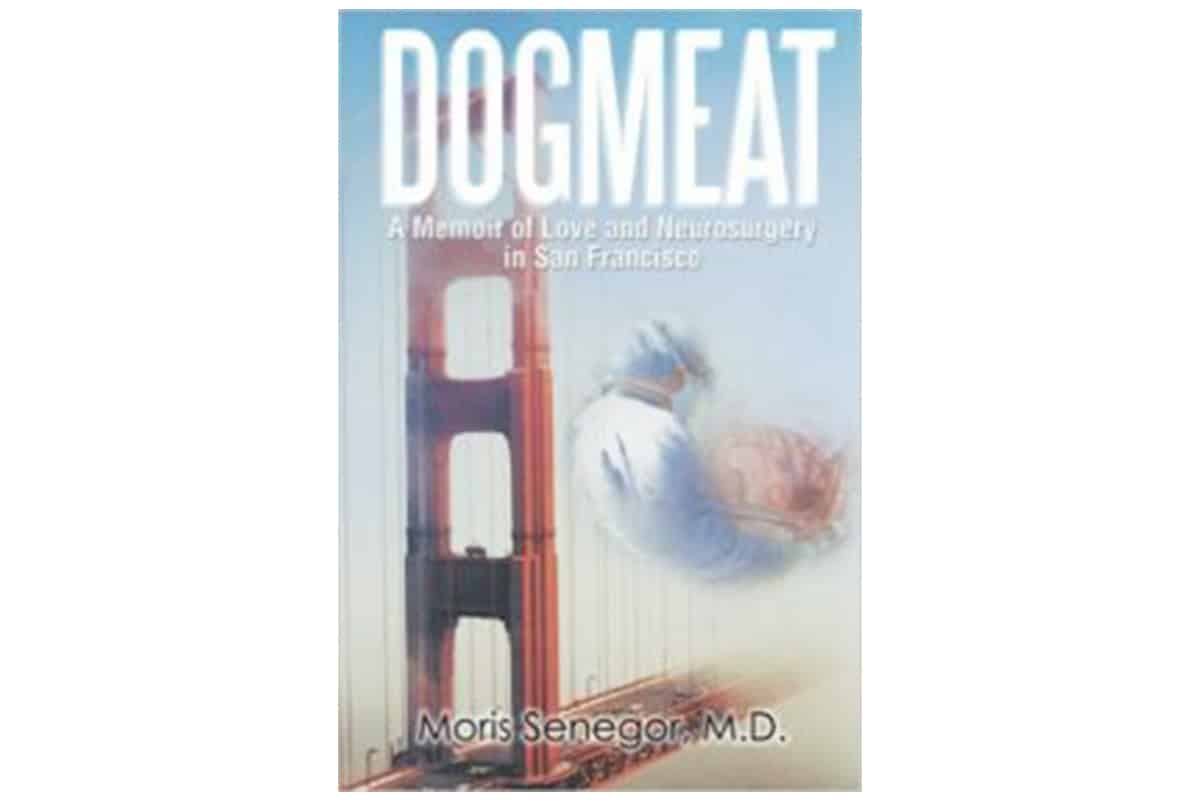
My Dogmeat Days
Arrogance crushed, hubris replaced with humility—these are running themes in my 2014 memoir, Dogmeat, about my six months training as a neurosurgeon at the University of California San Francisco (UCSF) with a world-famous, and famously difficult mentor, Charles Wilson, M.D. The experience nearly derailed my career.
Arrogance is a trait essential to surgeons; it’s how we keep going despite medical disasters. This ability to overcome adverse outcomes caused by surgical mishaps or poor clinical decisions is inculcated in surgical trainees. Arrogance becomes a powerful and necessary defense mechanism.
But what if there is too much of it? Only an exceptional disaster can corral it.
This is one of the main themes in my book, subtitled A Memoir of Love and Neurosurgery in San Francisco. In between jolting surgical experiences, I found two new loves, one a woman and the other, more enduring, the city of San Francisco. Its setting is—or was—during the 1980s, in a city redolent of Istanbul, Turkey, where I was born and raised.
My apprenticeship with the legendary chief at UCSF had been recommended to me by the chief of my home program at the University of Chicago, Dr. Sean Mullan. He was also a famous neurosurgeon, but with a very different temperament from Dr. Wilson’s. I was to fill a position at UCSF vacated by one of a multitude of residents that Dr. Wilson, a man with a penchant for firing residents, had let go.
When I arrived in San Francisco during the 1985 Christmas season, I was greeted by Jonathan Hodes, Dr. Wilson’s resident at the time, whose first words to me were that what I was doing was foolhardy and that the job I volunteered for was thankless. I would be nothing but a piece of dogmeat. I soon discovered how true his words were.
Until then, my life had been a classic American-dream story of a Turkish immigrant who, after initial difficulties, had excelled at the University of Chicago through college and medical school and become a capable, successful, well-regarded resident in neurosurgery. When I arrived in San Francisco I was cocky and ambitious, my future looked bright, and my 29-year-old ego was at its peak. I had never been in the city before, but as I stepped into the taxi taking me to UCSF, the driver suggested a certain route to the campus that I approved with complete self-assurance.
As though I knew my way around this new and unfamiliar city.
As though I knew my way around the neurosurgical theater, with its potential for disastrous consequences.
I named her Mrs. X in my memoir, her real name concealed for the sake of confidentiality. She was a middle-aged housewife with an unusual tumor at the base of her skull, what’s called a trigeminal neuroma. I opened her skull in one of Dr. Wilson’s three main operating rooms, preparing her for Dr. Wilson to remove the tumor. By then I had already experienced a series of mishaps related to my unfamiliarity with procedures unique to UCSF where, as it turned out, residents were loosely supervised compared with my home program in Chicago. I had silently braved through these, presenting myself as capable when what I should have done was to speak up and tell Dr. Wilson that I lacked the necessary foundation to function in his main brain surgery room. But arrogance doesn’t work that way.
Unaware of a tiny detail in the way Mrs. X’s skull should have been opened, I caused a massive, devastating brain hemorrhage that resulted in permanent neurological damage. It took some time for this mishap to have its full impact. But the entire time I was at UCSF, it hovered like a ghostly affront between Dr. Wilson and me. I eventually departed San Francisco in a deep abyss, my self-confidence shattered, my future as a neurosurgeon uncertain.
Decades later, when I wrote my memoir, I had redeemed myself and become a capable, successful neurosurgeon. I was 57 years old when I wrote Dogmeat, the same age Dr. Wilson was when he taught and terrorized me. But I had mended my relationship with Dr. Wilson, practicing not far from where he did. When we eventually reconnected, Mrs. X’s ghost was no longer between us.
But it has never really left me. As the years passed, there was one person who could never forgive what I did to her. It was, and is, myself.
Humility does that to you.
I am still arrogant, enough to carry on inmy profession, yet I am also humbled by a number of personal and professional disasters I have endured since my dogmeat days of 1986. But that was when I learned that arrogance can carry consequences that you carry with you forever.
Click here to get your copy of Dogmeat: A Memoir of Love and Neurosurgery in San Francisco









0 comments to "My Dogmeat Days"